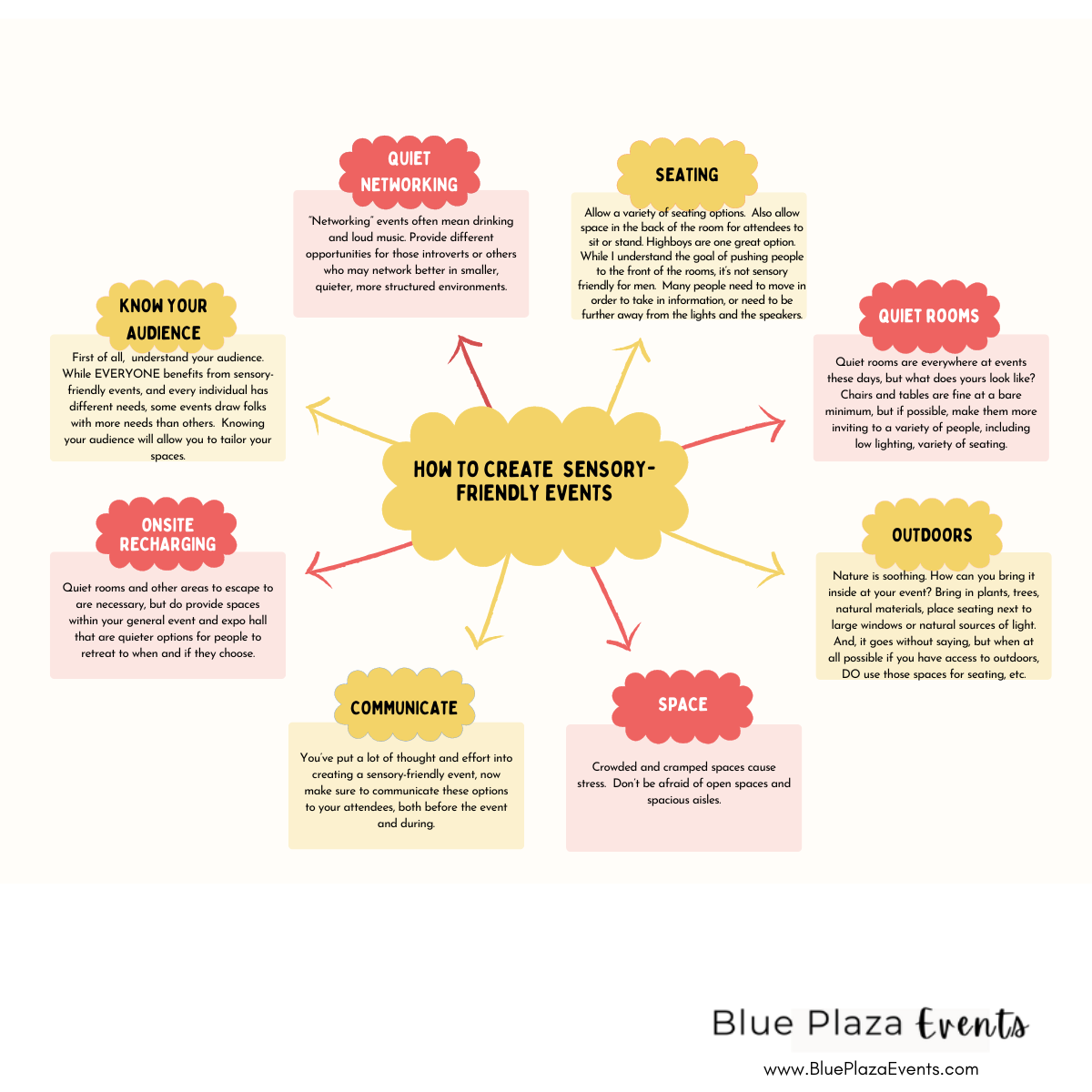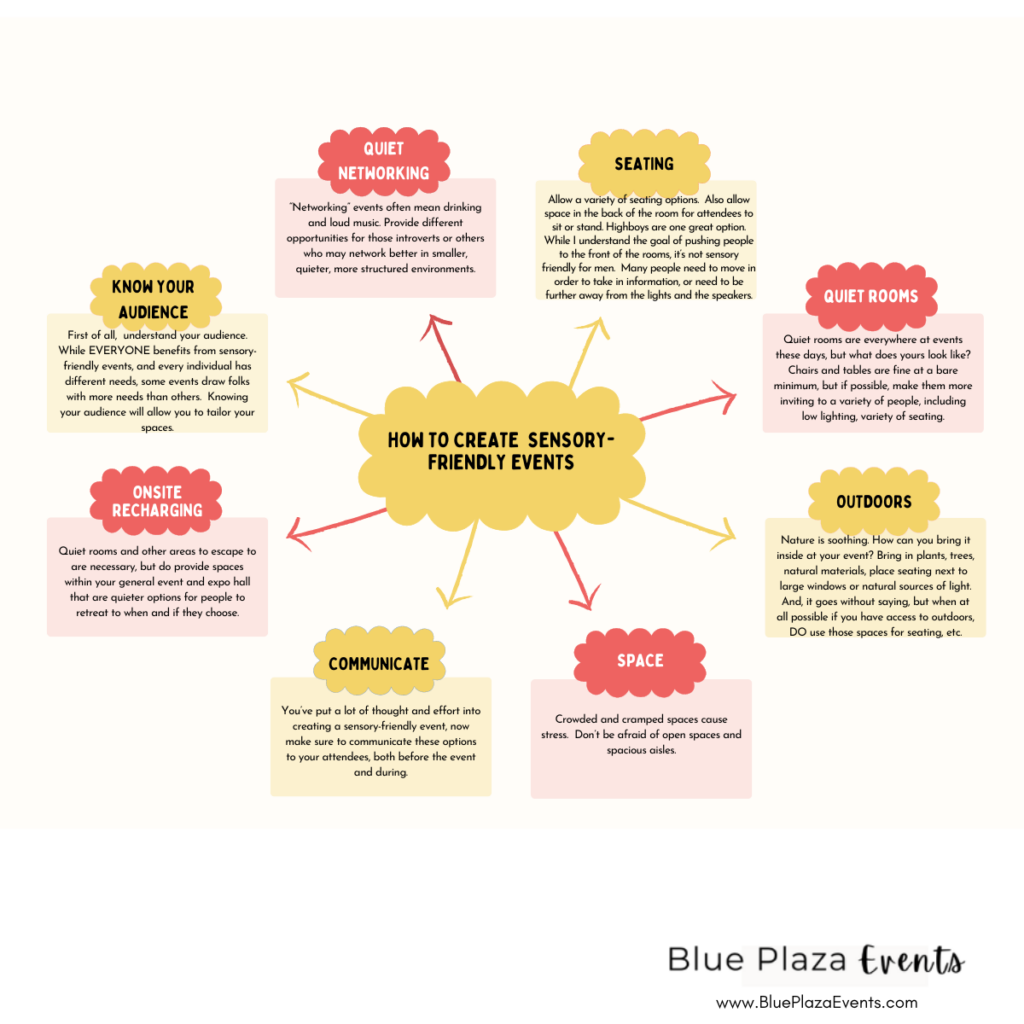
How to Create Sensory-Friendly Events
May 6, 2024
When my daughter was little, I took her hundreds of hours of occupational therapy appointments.
It was there that I got a crash course on sensory systems.
“Are you an OT?” people used to ask when I discussed all things sensory. Nope. 😅
But, it did open up my eyes to how important our sensory system is at a very foundational level, how our brain processes sensory information, and how sensory inputs help our brain make new pathways.
Our sensory system helps us regulate the numerous amounts of sensory input we receive daily.
It’s important that we have sensory inputs to make sense of the world and have robust experiences with it. Sensory input also helps us remember activities and become emotionally attached to them. For those of us building experiences, involving senses is crucial.
But, too much sensory information can overwhelm and leave us feeling unregulated.
At a most fundamental level, if our sensory system is not regulated or if it is overwhelmed, our flight or fright kicks in. Once our sensory system is regulated, it’s then and only them that we can attend to higher-level executive functioning activities like true learning.
So, while it’s important to offer a lot of sensory experiences, it’s also important to provide opportunities for attendees to escape it and get a sensory break should they need one.
How? See below.

Want a pdf? Click here.
PLEASE COMMENT BELOW